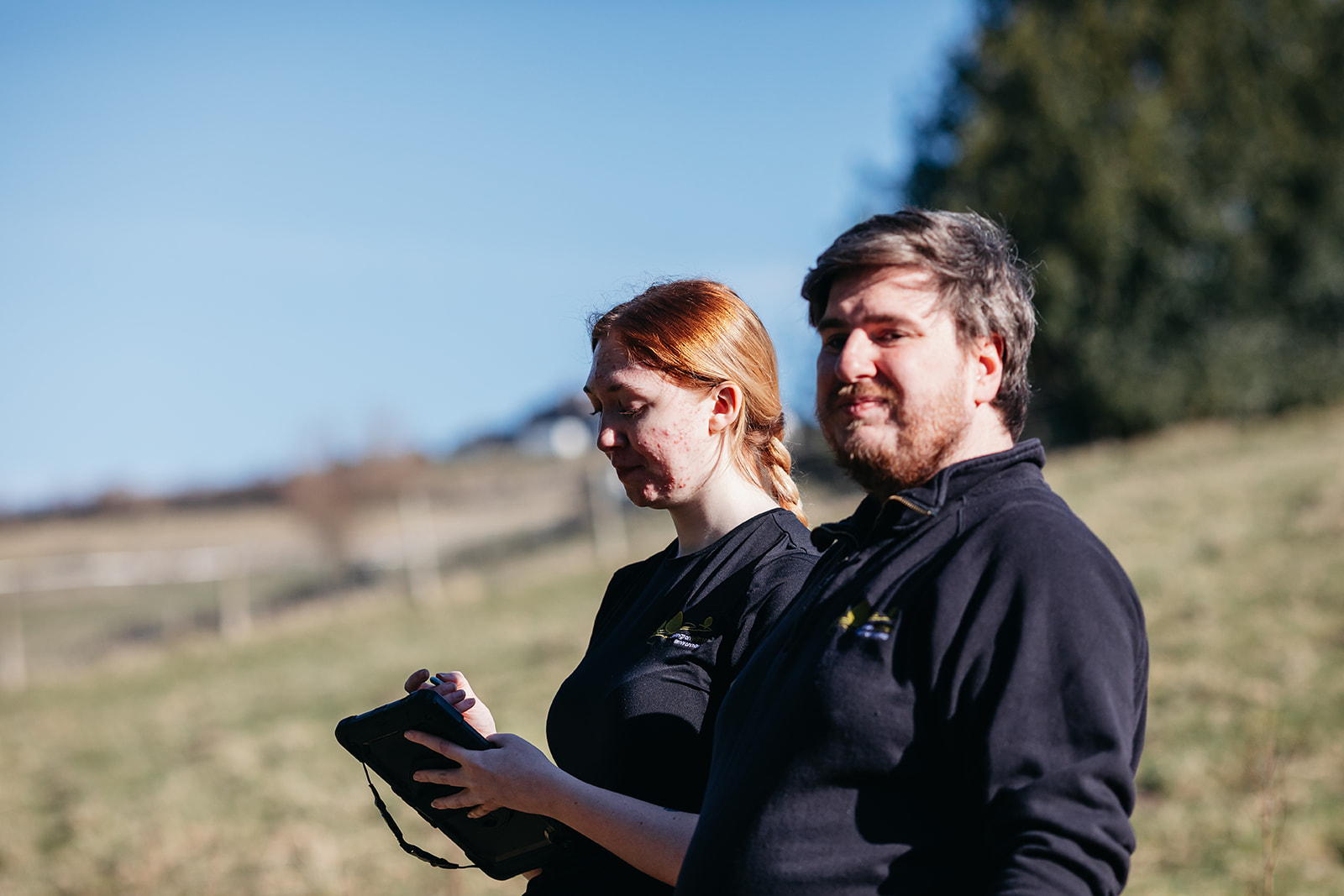How to Improve Farming Efficiency – The BNG Advantage
At Collington Winter Environmental, we work closely with farmers and landowners to develop sustainable land management strategies that enhance biodiversity while maintaining productivity. One area where the balance of farming efficiency is not only possible but increasingly beneficial is through Biodiversity Net Gain (BNG).
In an agricultural sector facing mounting challenges – from changing regulations to climate pressures – BNG offers a compelling route to improve farm efficiency and build long-term resilience, all while delivering measurable environmental outcomes. With the use of Biodiversity Net Gain principles and our expert ecology and landscape specialists, farmers and landowners can take a step towards a future-proofed farm.

What is Biodiversity Net Gain?
Biodiversity Net Gain is an approach to development and land use that leaves the natural environment in a demonstrably better state. In farming, this means integrating ecological enhancements, such as hedgerows, wildflower margins, wetland areas, or habitat corridors, into agricultural systems in a way that complements, rather than competes with, productivity goals.
Rather than viewing these features as lost acreage, BNG reframes them as ecological assets that can support and enhance the farm’s overall efficiency.
Rethinking Farming Efficiency: Working With Nature
Farm efficiency today means more than just yield per hectare. True efficiency encompasses input optimisation, long-term viability, and reduced environmental risk. By incorporating BNG principles, farmers can make more informed decisions about how land is used, especially where inputs might be disproportionately high relative to output.
Low-yielding or hard-to-manage areas can be repurposed to support biodiversity, reducing pressure on the rest of the farm and often improving outcomes for the land that remains in production.
Strategically placed habitats can support natural pollinators, beneficial insects, and improved soil and water quality – all of which help reduce the need for costly chemical inputs and enable smarter application rates for fertilisers and pesticides.
A Data-Led Approach to Land Management
With precision farming technologies becoming more accessible, it’s now possible to take a data-led approach to BNG. By analysing yield maps, soil health data, and field performance, we can identify areas where BNG can be most effectively implemented, adding ecological value without compromising, and often enhancing, crop production.
This approach enables landowners to focus investment on the most productive areas while securing ecological value and financial returns from marginal or underperforming land.
Unlocking Policy and Market Opportunities
As of 2024, Biodiversity Net Gain has been a legal requirement for most development projects in England under the Environment Act. For landowners, this opens up opportunities to deliver BNG units on-site or off-site and supply them to developers in need of compliance, creating new, long-term income streams.
Farmers adopting BNG early are well-positioned to benefit from these market mechanisms, as well as from government incentives linked to sustainable farming practices. These schemes not only reward biodiversity delivery but also favour farms demonstrating reduced input use and improved land stewardship.
At Collington Winter Environmental, we assist clients in identifying BNG potential on their land, calculating biodiversity baselines using Defra’s statutory metric, and developing credible, deliverable enhancement plans.

Long-term Resilience and Value
Integrating BNG into agricultural land management is also an investment in long-term resilience. Diverse ecosystems provide natural buffers against climate extremes, pests, and diseases – risks that are intensifying across the sector.
BNG features can deliver measurable benefits not just for biodiversity but also for operational stability and future land value.
Over time, this approach supports the creation of more regenerative, productive, and climate-resilient farms – qualities that will only become more valuable in the years ahead.
How Can Collington Winter Assist?
Our team at Collington Winter Environmental combines ecological expertise with pragmatic land management insights. We understand farming, and we know that moves to secure the future of the nation’s farms are necessary.
We work in partnership with landowners to design BNG strategies that align with farm business goals, complement existing environmental schemes, and support efficient land use. Our role is to help you navigate the evolving regulatory landscape, access emerging opportunities, and make BNG a tool that works for your farm, not against it.
Whether you’re looking to reduce input costs, optimise application rates, or explore biodiversity credit markets, contact us today at 01204 939608, info@collingtonwinter.co.uk, or fill in our enquiry form, and a member of our team will be in contact with you. Collington Winter Environmental is here to help you make the most of your land – for nature and for business.
Contact Us
Registered Address
23 Bark Street East, 1st Floor, Bolton, BL1 2BQ
Cambridge Office
Future Business Centre, Cambridge Campus, Kings Hedges Road, Cambridge, CB4 2HY
Leicester Office
Rutland House, 23-25 Friar Lane, Leicester, LE1 5QQ
Bristol Office
Newminster House, 27-29 Baldwin Street, Bristol, BS1 1LT
Telephone
Head Office: 01204 939 608
Dumfries Office: 01387 378208
